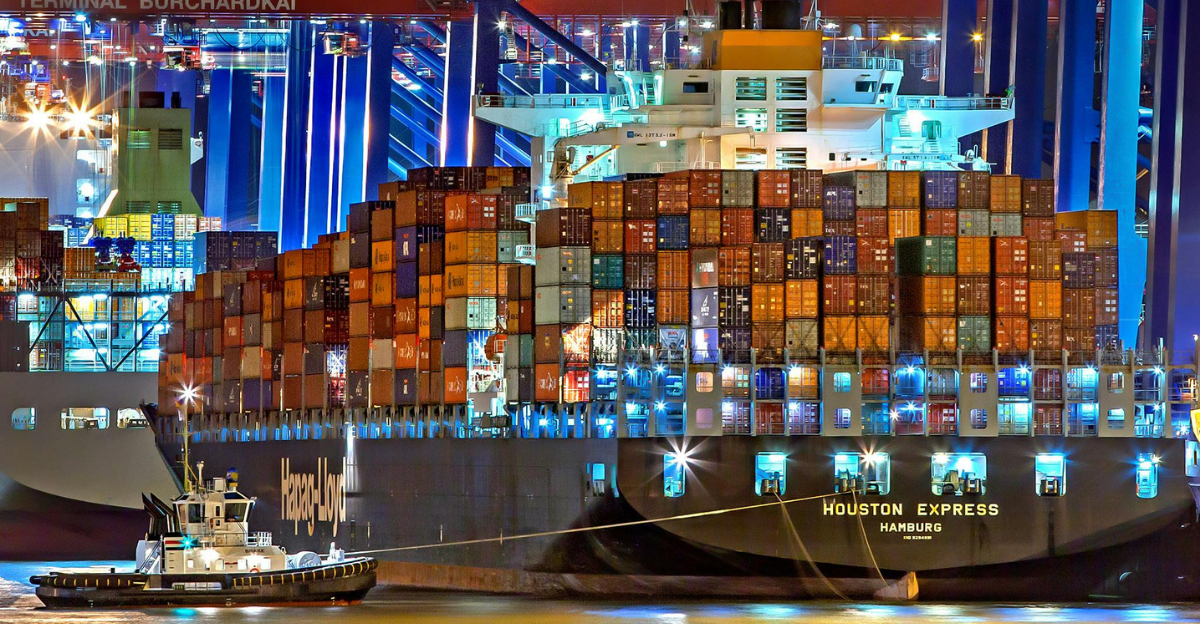
President Donald Trump’s aggressive tariff policies doubled steel and aluminum tariffs to 50% and imposed a baseline 10% tariff on all UK imports to the US. The tariffs raise prices for UK exporters, lower their ability to compete in the US market, and have an impact on the retail industry, endangering consumer prices and jobs.
By forcing retailers to either absorb costs, which lowers margins or pass them on to customers, which further dampens demand, the tariffs increase inflationary pressures already plaguing consumers. In an era of growing protectionism and geopolitical tensions, this collapse highlights the vulnerability of global trade networks, necessitating immediate strategic responses from both businesses and policymakers.
Historical Background of Tariff Policies and Trade Relations between the US and the UK

The US and the UK have historically had a strong trading relationship; the US accounts for 15.4% of UK exports, which are worth over £60 billion a year. Trade was generally free-flowing before Trump’s tariff war, which benefited industries like pharmaceuticals and auto manufacturing. Trump’s reelection and the tariffs that followed mark a dramatic shift from decades of comparatively free trade to protectionist measures.
The “special relationship” that has long been a pillar of political and economic cooperation between the two countries is also under threat from this change. Decades of mutual benefit and trust are upended by the tariffs, which forces the UK to reevaluate its diplomatic priorities and trade strategy. The need for measured, multilateral approaches to trade disputes rather than unilateral protectionism is highlighted here.
The Direct Economic Effect on UK Retail and Exports

As a result of the tariffs, UK exports to the US fell by a record £2 billion in April 2025, a 33% monthly decline that helped the UK GDP contract. Some industries have seen a 20% decrease in exports, with fishing, petroleum, pharmaceuticals, and electrical goods among the most severely affected. As supply chain interruptions and rising costs drive up prices and erode consumer confidence, UK retailers are also feeling the pinch.
Smaller companies that depend on imports and exports are also affected by the economic fallout, as they must deal with more paperwork, delays, and expenses, which further reduces their profit margins. Despite the potential long-term benefits, this strategic change entails substantial short-term disruption and investment, which exacerbates the economic uncertainty already plaguing the retail industry and the UK economy as a whole.
Effects of Psychology and Customer Confidence on Retail

Tariffs have a significant psychological impact on consumer behavior in addition to their direct financial costs. Consumer confidence is damaged by the uncertainty and inflationary pressures brought on by tariff-induced price increases, which result in less discretionary spending—higher wholesale prices and fewer consumers willing to spend money, presenting retailers with a dilemma. In a world where consumer sentiment is just as crucial as economic fundamentals, retailers must innovate or risk going out of business.
The retail landscape may change as a result of consumers’ declining faith in consistent pricing and product availability, which may cause them to switch to discount stores or internet alternatives. This change puts traditional retail models to the test and forces companies to adjust quickly to shifting consumer demands and habits in an unpredictable economic environment.
Strategic Difficulties for UK Supply Chains and Businesses

Tariffs present complicated strategic challenges for UK businesses. Businesses have to deal with increased export prices to the US, possible retaliatory tariffs, and supply chains that depend on smooth global transactions. In order to maintain price competitiveness, UK importers may be forced to look for alternative suppliers outside of the US due to the increased cost burden, which could change global supply chains.
After Brexit, businesses also had to deal with regulatory changes, which, when paired with tariffs, created a maze of compliance issues. The strategic imperative is clear, in order to survive and prosper in the face of continuous trade disruptions, UK businesses must diversify their markets, invest in innovation, and strengthen the resilience of their supply chains.
Contrarian Opinion: Can Tariffs Encourage Innovation at Home

Tariffs also encourage UK manufacturers to make investments in efficiency and automation to counteract cost increases, which could hasten the adoption of new technologies. However, given the overwhelming negative immediate consequences, this hopeful scenario necessitates significant government support and strategic foresight.
There is still a chance that tariffs will worsen job losses and economic stagnation in the absence of concerted policy responses. The UK may become more competitive internationally if it takes advantage of this opportunity to invest in green industries, high-tech manufacturing, and skill development. Turning hardship into opportunity would necessitate a paradigm shift in economic policy, giving innovation ecosystems and public-private cooperation top priority.
Extreme Case Study: Job Loss Risks in the UK Automotive Sector

The severe risks posed by tariffs are best illustrated by the UK automobile industry. Plant closures and supply chain reductions may result from the loss of US market access, which would have an impact on related sectors like logistics and parts suppliers. This case highlights the human cost behind headline statistics by glaringly demonstrating how tariff policies result in actual economic suffering rather than just hypothetical trade figures.
Global competition and regulatory divergence brought on by Brexit also pose difficulties for the automotive sector, exacerbating the effects of tariffs. Significant social repercussions, such as higher unemployment and a regional economic downturn, especially in manufacturing centers, would result from the possible collapse of this industry.
A Special Structure: The “Tariff Domino Effect” Model

Take a look at the “Tariff Domino Effect” framework to comprehend the wider ramifications: Initial tariffs cause exports to decline, which lowers investment and business revenues, resulting in job losses and decreased consumer spending. Trade volumes and economic growth are further suppressed by this contraction, which in turn feeds back into a weakened demand for imports.
Furthermore, as industries centered in particular regions take the brunt of the impact, the domino effect can worsen regional disparities, resulting in an uneven economic recovery and social unrest. To avoid long-term structural harm, policymakers must take into account the systemic nature of tariff impacts and create interventions that address employment, consumer welfare, regional development, and trade balances.
Possible Remedies and Policy Reactions

Bold, well-coordinated policy responses are needed to mitigate the tariff fallout. By providing fiscal stimulus and assistance to impacted industries, especially manufacturing and retail, the UK government must increase consumer confidence. Important strategic actions include investing in supply chain resilience and expanding export markets outside of the US. Although they need diplomatic nimbleness, trade talks to lower tariffs or obtain exemptions could ease pressures.
To manage rising compliance costs, policymakers should also take into account grants and targeted tax breaks for SMEs. Ultimately, to restore trade vitality and retail sector resilience, a multifaceted strategy combining economic stimulus, business innovation, and diplomacy is required.
Future Prospects for UK-US Trade and Retail with Enlightened Realism

A clear reminder that protectionism has high costs, particularly for interconnected economies and retail industries that depend on global supply chains, is the collapse of UK-US trade under Trump’s tariff blitz. The evidence indicates that tariffs hinder growth, raise consumer prices, and undermine confidence, despite the claims of some that they safeguard domestic industries. Without strategic changes, the UK could lose £22 billion in exports and experience severe retail declines.
Additionally, this time presents a chance to reconsider international trade frameworks and prioritize collaboration over conflict. The way the UK handles this crisis will determine its economic course for decades, so leaders must strike a balance between short-term relief and long-term strategic planning to ensure social stability and sustainable growth.
Discover more DIY hacks and style inspo- Follow us to keep the glow-up coming to your feed!

Love content like this? Tap Follow at the top of the page to stay in the loop with the latest beauty trends, DIY tips, and style inspo. Don’t forget to share your thoughts in the comments — we love hearing from you!